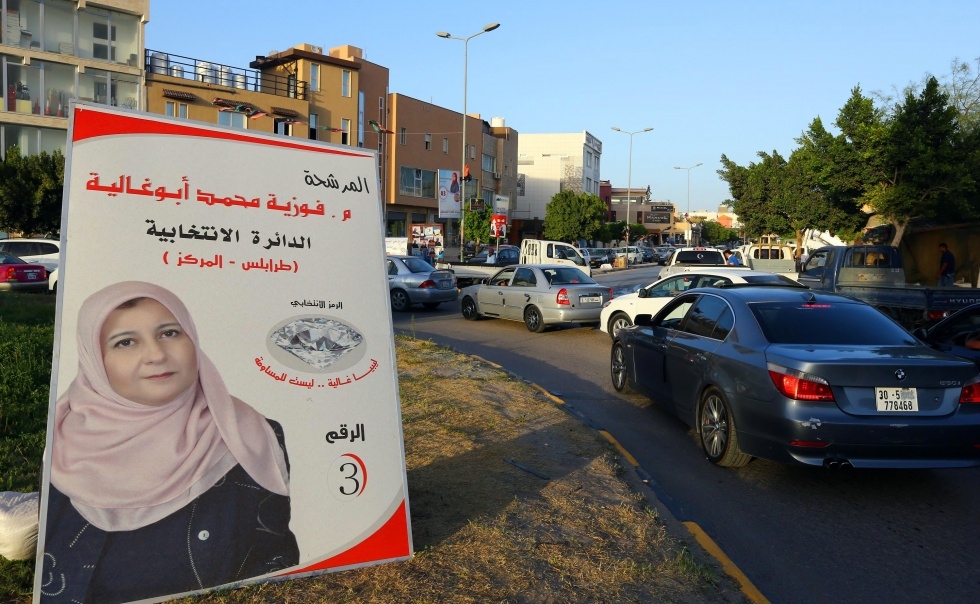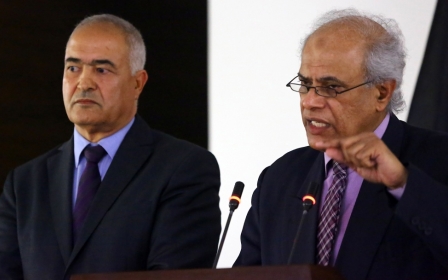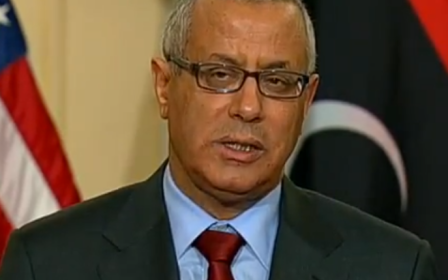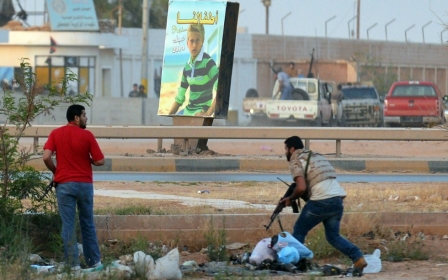Libyans to elect new parliament in bid for stability

Libyans are to elect a new parliament on Wednesday, in a vote seen as crucial for the future of a country hit by months of political chaos and growing unrest.
On Saturday, Libyan expat voters casted their ballots in 13 countries. According to Libya's High National Elections Commission, the countries were Canada, Egypt, Germany, Ireland, Italy, Jordan, Malaysia, Qatar, Tunisia, Turkey, the UAE, the UK and the USA.
In the past few weeks, Libya has been rocked by a crisis that saw two rival cabinets jostling for power while violence raged in the east, where a rogue general is battling Islamists.
Militias who helped topple dictator Moamer Gaddafi in the 2011 NATO-backed uprising have been locked in infighting.
Commentators have warned violence could scupper the vote, but the authorities are confident it will go ahead without disruptions.
There are hopes a new General National Congress, or parliament, will work to resolve the power struggle between liberals and Islamists that has stymied efforts to reform Libya.
The GNC, which has served as Libya's highest political authority since Gaddafi's ouster, was elected in July 2012, in the country's first ever free polls.
But it has been mired in controversy, with successive governments complaining its role as the executive and legislative authority has tied their hands in taming militias.
The crisis came to a head in February when the assembly, whose term had been due to expire, decided to prolong its mandate until December.
The move sparked street protests and forced lawmakers to announce the election.
Almost 3.5 million Libyans are eligible to vote but only 1.5 million have registered, according to officials, a far cry from the more than 2.7 registered voters two years ago.
Voters will choose from among 1,628 candidates, with 32 seats in the 200-strong GNC reserved for women and would-be MPs banned from belonging to any political party.
Libya is divided into13 constituencies, and the electoral commission has stressed it is seeking only "individual candidates" -- not necessarily independents but those with no declared political affiliations.
'Shadow MPs'
For analyst Salem Soltan, none of the candidates standing in the elections "carry the political or social weight" needed in the assembly.
The new parliament risks "being run by shadow MPs, who will act according to instructions" from other parties, he said.
In the more immediate future, however, there are concerns the violence will ruin the election, particular in the unrest-hit east.
"Generally, we are optimistic, but there is a risk that the vote will be disrupted in some polling stations, namely in Benghazi and Derna," in eastern Libya, an electoral official told AFP.
Last week, the government instructed the interior ministry and the armed forces to come up with a security plan for the vote.
The task is not expected to be easy.
Authorities have been struggling to build a strong army and police force and now face defections from members of the security forces who have joined the ranks of rogue general Khalifa Haftar who is battling Islamists in Benghazi.
Haftar, accused by authorities of trying to mount a coup, said he would observe a truce on voting day.
"The challenge is not holding an election. The success of the vote will depend on whether all influential players in the country will accept its results," said a western diplomat.
Wednesday's vote will be held between 0600 and 1800 GMT at 1,601 polling stations scattered across the country.
Libya adopts budget
Libya's interim parliament on Sunday adopted the 2014 budget worth some $48 billion, after long delays.
The official Lana news agency said the budget approved by the outgoing GNC was based on an oil price of $100 per barrel, with production of 800,000 barrels per day.
It forecast a deficit of $8 billion.
Libya's oil-dependent economy took a severe beating when rebels blockaded export terminals last year.
Their seizure of four terminals, part of campaign for greater autonomy for the eastern region of Cyrenaica, slashed output from 1.5 million barrels per day to just 200,000 bpd.
But the government reached a deal in April to regain control of the terminal, taking back two of them.
Libya, which relies on oil for 96 percent of its gross domestic product, says the blockade has cost the country more than $14 billion (10.1 billion euros) in lost revenues.
On a monthly basis, the central bank estimates revenues have plunged to only $1 billion from $4.6 billion.
An International Monetary Fund-World Bank assessment on Libya this year forecast that a contraction of GDP that reached 5.3 percent last year would widen to eight percent in 2014.
New MEE newsletter: Jerusalem Dispatch
Sign up to get the latest insights and analysis on Israel-Palestine, alongside Turkey Unpacked and other MEE newsletters
Middle East Eye delivers independent and unrivalled coverage and analysis of the Middle East, North Africa and beyond. To learn more about republishing this content and the associated fees, please fill out this form. More about MEE can be found here.




